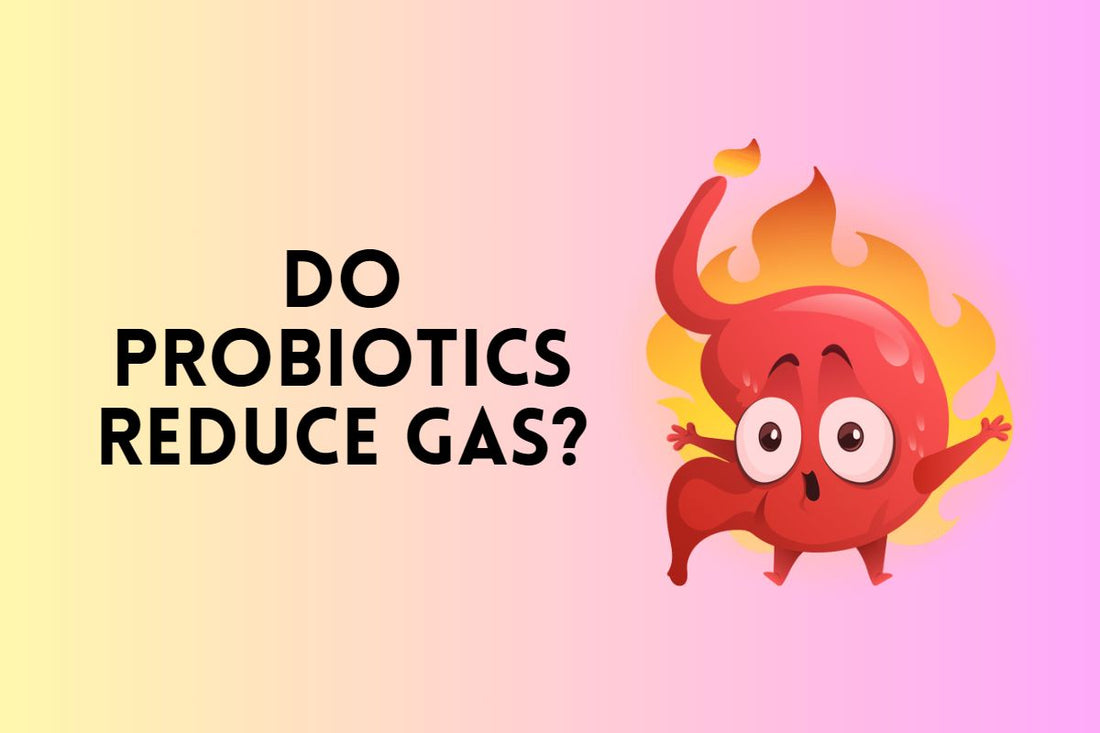
Do Probiotics Reduce Gas?
Share
Gas is a common digestive issue that can cause discomfort and embarrassment. Many people wonder if probiotics, which have gained popularity for their potential health benefits, can reduce gas. In this article, we will explore the relationship between probiotics and gas, examining the scientific evidence and understanding how probiotics work in the gut.
Introduction
Gas is a natural byproduct of the digestive process. When we eat and drink, air can enter our digestive system, and certain foods can produce gases during digestion. Excessive gas, however, can be bothersome and lead to bloating, belching, and flatulence. Probiotics have been suggested as a potential solution to reduce gas and promote a healthy gut.
Understanding Gas and Its Causes
Before delving into the topic of probiotics and their role in reducing gas, it's essential to understand the basics of gas production in the digestive system. When we swallow air or consume certain foods high in indigestible carbohydrates, such as beans or cabbage, it can lead to increased gas formation. Additionally, imbalances in gut bacteria and a slow digestive system can contribute to excessive gas.
What Are Probiotics?
Probiotics are live microorganisms that, when consumed in adequate amounts, can provide health benefits. These beneficial bacteria and yeasts can be found in certain foods and supplements. Probiotics work by restoring the balance of gut bacteria, which is crucial for maintaining optimal digestive health.
The Relationship Between Probiotics and Gas
Numerous studies have examined the effects of probiotics on gas reduction. Research suggests that certain strains of probiotics, such as Lactobacillus and Bifidobacterium, can help alleviate symptoms associated with excessive gas. These strains are believed to regulate gut motility, enhance the digestion of carbohydrates, and minimize the production of gas.
Probiotic Strains for Gas Reduction
Not all probiotic strains are equally effective in reducing gas. Studies have identified specific strains that show promising results in this regard. For example, Lactobacillus acidophilus and Bifidobacterium lactis have been found to be beneficial in reducing gas and improving overall digestive health. It is important to choose probiotic supplements or foods that contain these strains for optimal results.
Incorporating Probiotics into Your Diet
To harness the potential benefits of probiotics for reducing gas, you can incorporate them into your daily diet. Natural food sources of probiotics include yogurt, sauerkraut, kimchi, and other fermented foods. These foods contain live cultures of beneficial bacteria that can support a healthy gut.
If you prefer a more convenient option or want to ensure an adequate intake of probiotics, you can opt for probiotic supplements like Projoy Acidity Relief Probiotic. These supplements come in powders form. Take one tablespoon with water or milk to fight off gas.
Other Digestive Health Benefits of Probiotics
Reducing gas is not the only benefit that probiotics offer for digestive health. They play a crucial role in maintaining a balanced gut microbiome, which has a wide range of positive effects on overall digestion. Probiotics help improve nutrient absorption, support immune function, and may even alleviate other digestive issues such as bloating, constipation, or diarrhea.
Conclusion
In conclusion, probiotics have shown promise in reducing gas and improving digestive health. By incorporating probiotic-rich foods or supplements containing specific strains like Lactobacillus acidophilus and Bifidobacterium lactis, you can support a healthy gut microbiome and potentially alleviate gas-related discomfort.
To access premium probiotics that can provide the discussed benefits, visit our website at myprojoy.com. We proudly offer a range of carefully crafted probiotic supplements designed to enhance digestive health, boost the immune system, and promote overall well-being for both men and women.
FAQs
-
Can probiotics completely eliminate gas?
- While probiotics can help reduce gas, individual responses may vary. Complete elimination of gas may not be possible, but probiotics can provide relief from excessive gas and promote a healthier digestive system.
-
How long does it take for probiotics to reduce gas?
- The time it takes for probiotics to reduce gas varies from person to person. Some individuals may experience relief within a few days, while others may require several weeks. Consistency in consuming probiotics is key for optimal results.
-
Are probiotics safe for everyone to take?
- In general, probiotics are safe for most individuals. However, it is advisable to consult with a healthcare professional, especially if you have compromised immunity.
-
Are there any natural alternatives to probiotics?
- While probiotics are a beneficial option, there are also natural ways to support digestive health. Consuming a balanced diet rich in fiber, staying hydrated, managing stress levels, and maintaining regular physical activity can all contribute to a healthy gut.
Ready to say goodbye to acidity and hello to a healthier gut? 👇Try Now👇
